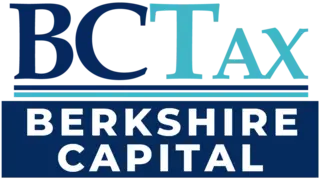IRS Crackdown on Wealthy Tax Dodgers Is Already Bringing in Millions

The IRS put high-income tax dodgers on notice in February when it announced an initiative to go after wealthy non-filers. Now, the agency reports that it’s made "significant progress" — to the tune of $172 million.
Everyday folks don't need to worry: The Biden-Harris administration has a longstanding commitment to not raise taxes on individuals earning less than $400,000, and officials say recent tax compliance work isn't targeted at Americans under that threshold, either. With this latest effort to "crack down" on tax evasion, the IRS began to chase down about 125,000 people who hadn’t filed tax returns since 2017.
Of those cases, 25,000 had over $1 million in annual income, and the other 100,000 were earning over $400,000. The IRS says it was able to identify these high-income non-filers based on tax forms from third parties, namely W-2s and 1099s.
On Friday, the IRS announced it collected that $172 million from 21,000 of those people, and a senior Treasury official suggested on a press call that's only the beginning of what could be closer to a $1 billion recovery project. So far, the tax payments have largely come from people who responded to initial IRS outreach informing them that they were on the agency's radar for not filing tax returns.
The Inflation Reduction Act, signed in 2022, provided additional funds for the IRS to try to get high-income and high-wealth individuals to pay taxes they owe the government. Previously, the IRS said, it lacked the resources to pursue these taxpayers, and the “non-filer program ran sporadically since 2016 due to severe budget and staff limitations.”
“It’s not right that everyday Americans pay taxes while struggling to make ends meet, but some of the wealthiest in this country have been able to evade payment,” Secretary of the Treasury Janet Yellen said at an event in Austin Friday.
The IRS’s crackdown on wealthy taxpayers remains controversial in Washington, as Republicans argue it’s a poor use of government resources. It may even become an election issue in the tight race between Vice President Kamala Harris and former President Donald Trump.
“Harris was the tie-breaking vote for the Inflation Reduction Act in the Senate, which… led to a massive expansion of the IRS with an additional $80 billion to hire 87,000 new agents,” Brian Hughes, a Trump campaign adviser, told reporters Thursday. (That’s according to a CNN report, which also notes that the number of agents he cited is exaggerated.)
Yellen has lambasted those in Congress who want to cut IRS funding, saying Friday that would "make it easier for wealthy Americans and corporations to avoid paying what they owe while working Americans foot the bill."
In any case, as officials tout the IRS’s progress in finding non-filers, they’re also talking up several related initiatives to get the wealthy to pay their fair share in taxes.
For years, Yellen said, the IRS has failed to adequately audit millionaires — an issue the agency is trying to correct. Officials also announced that an initiative to recover delinquent tax debt has from 1,600 wealthy individuals has led to the recovery of $1.1 billion, up from $1 billion as of the last update in July. According to the IRS, these people all had over $1 million in annual income and over $250,000 in tax debt.
More from Money:
5 Best Tax Relief Companies of 2024
Here's the Average 401(k) Balance by Generation — How Do You Stack up?
Most Millionaires Favor Tax Hikes... for Anyone Richer Than They Are




